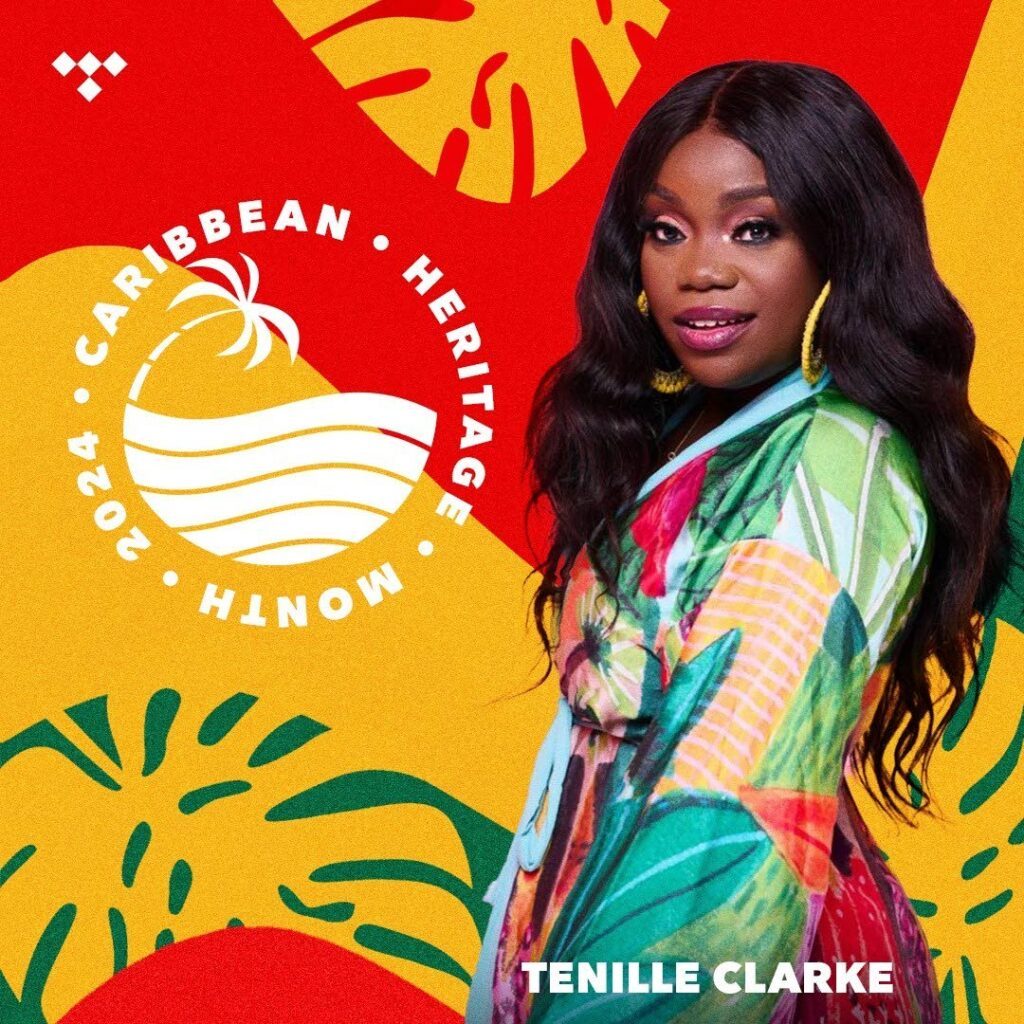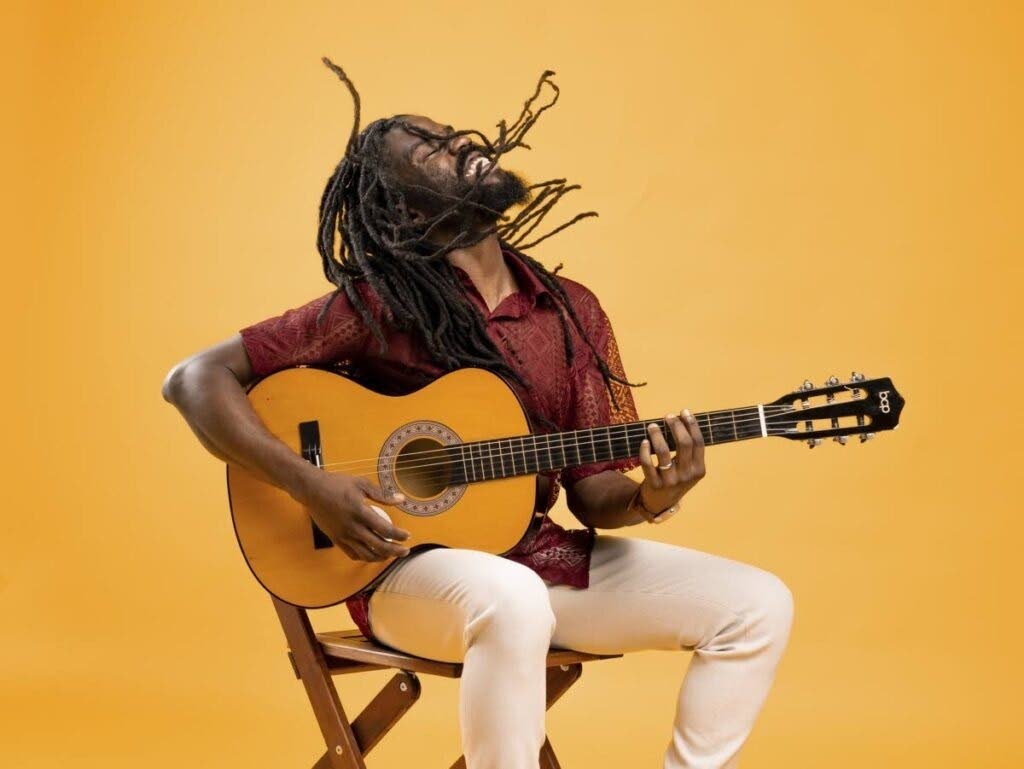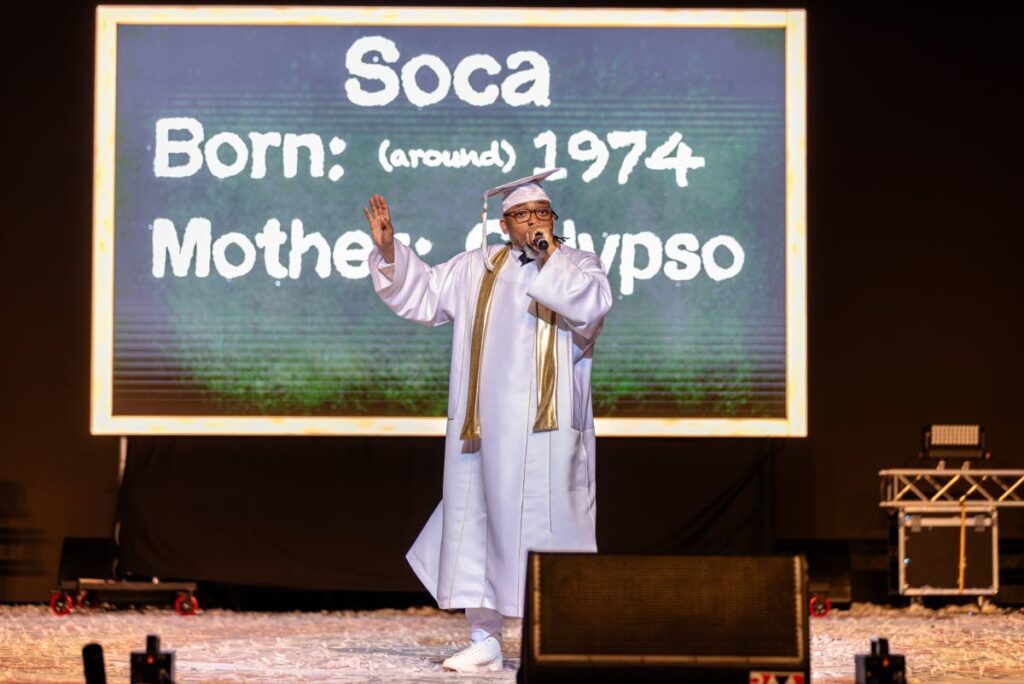PR expert Tenille Clarke curates playlist for Tidal

Publicist Tenille Clarke wanted to show all that the Caribbean could offer musically when she curated a playlist for global music streaming platform, Tidal.
Clarke was one of several regional music industry experts chosen to create playlists in commemoration of the US’s Caribbean History Month, which is observed in June.
For Clarke, this opportunity provided more than visibility to regional artistes: it also showed the Caribbean’s unique storytelling ability.
The playlist features artistes like Machel Montano, Patrice Roberts, Freetown Collective, Jamaican musician Hector “Roots” Lewis, iconic Guadeloupean group Kassav, Vaughnette Bigford and Grenadian artiste Shem “Terra D Governor” Bernard.
Clarke said in a phone interview that Tidal contacted her in May and she was able to curate the playlist within a week after that.
She said the platform contacted her because of her work as a PR specialist in the music industry.

On June 14 – when the playlist launched – Tidal posted on Instagram, “June marks the annual Caribbean Heritage Month! It is only fitting to partner with highly acclaimed public relations specialist tenilleclarke1 from TT. For the love of music and our appreciation of the West Indies, check out Tenille's playlist.”
Clarke said her advocacy for artistes’ interests and ensuring that their work is heard beyond the region’s borders led the platform to her.
She was chosen to kick-start the series but there were also other curators.
She deliberately put together a playlist of 35 songs from the English-, Spanish- and French-speaking Caribbean.
This particular playlist “incisively tapped in to specific areas of music and subgenres in the Caribbean as opposed to the Caribbean music playlists that may not, necessarily, be an in-depth reflection of the vast offerings that the region has,” she said.
Geographic location, genre, age and gender were among the criteria.
Even though Caribbean Heritage Month has ended,, the playlist is still up and should be there indefinitely, she plans to add at least 20 more songs to the list.
“What I did as well was ask people for their feedback on new music or music that simply may not have crossed my path. I want to take the opportunity to continue building on my playlist,” she added.
Many regional artistes were not signed to major labels because of the structure of the Caribbean music industry ecosystem and opted to go the independent route.
While this could be rewarding, it was not without its challenges like resource capacity and the ability to tap into audience engagement, she said.
“When you have a machine behind you, like a major label, that path is made easier.”
This was why initiatives like these were important for the region, she said.
These kinds of playlists gave an almost immediate return on investment in terms of audience visibility, Clarke added.

“Our music is fantastic. It is diverse, rich and powerful. We are arguably the best storytellers in the world. Tidal undertaking this responsibility to champion Caribbean music in such a meaningful and impactful way directly affects abilities to be seen and be heard.”
Clarke said it did not only bring new listeners and audiences that would subscribe to the experiences but also A&R (artists and repertoire) and other executives who might see an opportunity to synergise talent on a long-term basis.
She added that these kinds of initiatives were starts to giving the region's music more visibility
but a lot more work was needed on both ends, platforms and artistes. Clarke said digital service providers needed to provide more of these kinds of opportunities, but artistes should also focus on continuous artistic development goals.
“So that we could make sure we are matching and exceeding the expectations and staying ahead of the curve. The music industry is always changing and we have to stay plugged in and make sure we are not falling behind.”
Artistes no longer needed to rely heavily on radio airplay as in the past and, in the digital age, access to information and the responsibility associated with that looked completely different.
“When you have opportunities like these, at the very nucleus of it all, it makes the world a lot smaller for the artistes to access and I think that is really powerful tool in ensuring when you are speaking about cultural currency.”
Clarke said this made the cultural currency that much stronger for people to negotiate on the global scale.

However, the region needed to stay unified and was way too small to dissect a singular market experience from any particular island or territory, she said.
She believes the region should move forward as one, musically.
Clarke used the example of the African continent’s artistes lobbying for its category as an example as to why the region needed musical unity.
“You have to join the membership and you have to occupy the spaces where the conversations are happening,” she said.
Becoming more visible in these spaces also required that the region value its unique storytelling ability.
“We do not need to deviate into what might considered to be mainstream in order to be able to succeed. Caribbean storytelling is a powerful magnet in what it represents fundamentally and we need to continue pushing that forward.”
On the artistes' side, continuous artistic development was needed to drive the industry forward and needed to take things like going to writing camps seriously.

Asked if artiste development was foremost on the minds of entertainers, Clarke said they were now beginning to pay attention, and there was still work to be done.
“I do think the artistes are very aware now that we are in a competing environment for audience engagement and you have to do the small things right.”
Clarke called on more artistes to invest more in themselves.
As more and more people gear up for Carnival 2025, Clarke said the festival was an important cornerstone to TT’s cultural identity but also did not want people to lose sight of the fact that there were many other genres of music in the country and across the region.
“Obviously, soca is so important and critical to our heritage, but, as a music industry framework, we have to be able to capitalise on the diversity and the range of the sonic experiences we offer.”
Artistes had to let go of the seasonality as it related to bodies of work and that was happening a lot more now, Clarke said.

Comments
"PR expert Tenille Clarke curates playlist for Tidal"